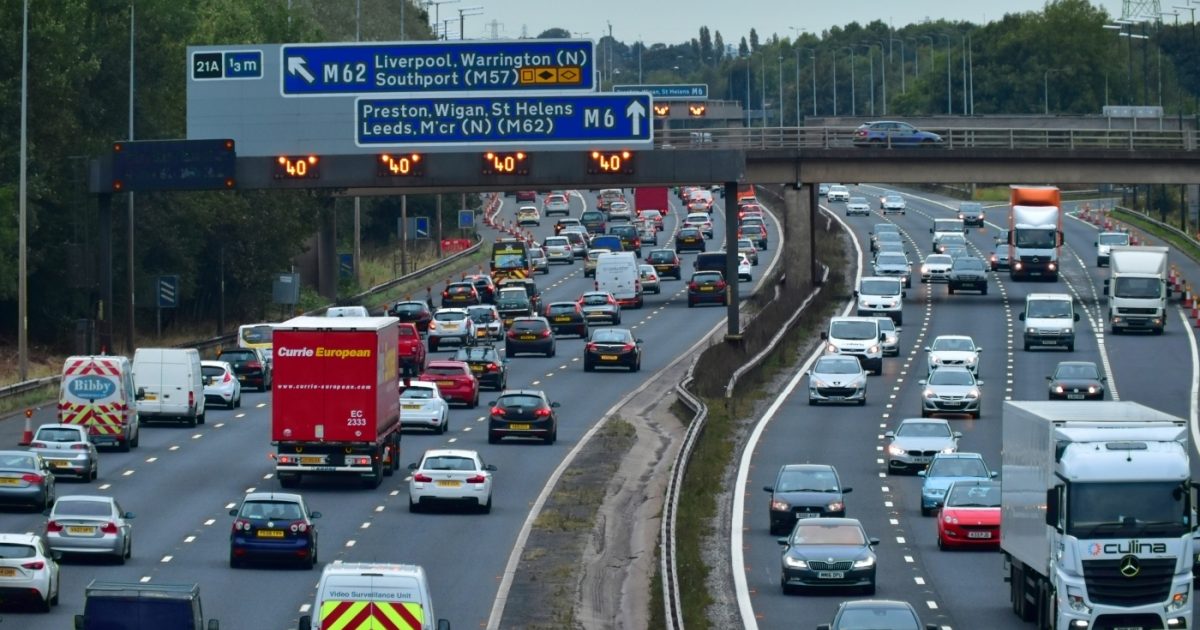Gasoline responsibility has been frozen for the thirteenth yr in a row. When will the federal government abandon this regressive, environmentally damaging coverage?
The spring price range noticed the chancellor freeze the speed of gas responsibility for the 13th yr working, a choice backed by each main events. However the choice’s recognition with politicians doesn’t mirror its recognition throughout civil society. The coverage is extensively regarded as economically inefficient and environmentally damaging.
Freezing gas responsibility on the stage launched final yr (decreased by 5p) means a real-terms lower to how a lot of their disposable earnings drivers are spending on gas, given inflation and wage development. The web results of this freeze is more likely to be a rise within the public’s consumption of gas and, in flip, a rise in polluting carbon emissions.
At NEF, we’ve performed evaluation which has discovered that the doubtless enhance in family gas consumption over the subsequent yr will lead to 3.4 to three.9m further tonnes of carbon dioxide being launched into the ambiance. That is equal to including between 2 and a pair of.3m extra automobiles to UK roads for a yr. When in comparison with 2021, this will increase highway transport emissions by between 3.4% and three.9%.
One comparability specifically shines a lightweight on the inconsistency of this carbon-pumping announcement. Paperwork launched alongside the spring price range reveal that, similtaneously it was making this £6bn funding into high-carbon gas consumption, this authorities was receiving virtually precisely the identical quantity — £6bn — from its carbon taxation mechanism, the UK Emissions Buying and selling Scheme. We’re taxing carbon with one hand and discounting it with the opposite.
To danger this distinctive enhance in emissions within the midst of a local weather emergency, the coverage will need to have a compelling financial case. Nevertheless it doesn’t. We’ve discovered that, of the £3.4bn in gas responsibility financial savings that households will make over the approaching yr, £2.2bn (or 64%) will accrue to households within the prime 50% by equivalised earnings, whereas solely £1.2bn (36%) will accrue to the underside half. That’s virtually two-thirds of financial savings going to the richest households, and simply above a 3rd going to the poorest.
Throughout his speech the chancellor prompt that particular person households would profit to the tune of £100, however this isn’t true of households within the backside 40% by earnings. Certainly households within the backside 10% of earnings will solely profit by £55, and naturally, any home and not using a automobile (that are much more prevalent within the decrease earnings teams) will obtain no direct profit. In the meantime, the highest 10% of households will save £155.
It’s true in fact, that companies may also lower your expenses, and that to some extent this may occasionally filter by means of into decreased costs. But when the latest epidemic of ‘greedflation’ is something to go by, many companies won’t go this saving onto shoppers. We have now already seen how some retailers on the pump have not totally handed on the gas responsibility lower over the past yr. Regardless, the query to be resolved just isn’t whether or not assist ought to be supplied to households to assist handle greater costs. The query is: what’s the best mechanism for doing so? If, for instance, the £6bn invested within the gas responsibility freeze had as an alternative been used to make a one-off flat money fee to each family, each home would profit to the tune £220. And such a coverage could be much more progressive in its distribution, as lower-income households would see their earnings boosted by a a lot greater proportion.
Alternatively, we might look to different types of transport-related assist. Whereas petrol prices rose after the Russian invasion of Ukraine, there are indicators that they’re on the best way down. Different public transport costs nonetheless, have risen considerably additional and quicker over the previous 13 years of gas responsibility freeze. Whereas gas costs are presently up 23% on Q2 2011, we’ve discovered that bus fares are up a staggering 76% (even after latest authorities interventions) and prepare fares are up 50%. Worse nonetheless, simply weeks earlier than the federal government’s choice to place £6bn into chopping gas costs, it slashed the price range for strolling and biking infrastructure funding by over £200m.
Insurance policies, reminiscent of capping of bus fares, have been proven to be extremely efficient. In Higher Manchester as an illustration there was a leap of 1.5m passenger journeys inside simply three months. Extra funding in public and energetic journey would profit all of us, would supply way more to lower-income households, and would lower carbon emissions.
Strategies: Two strategies have been used to calculate the carbon emissions ensuing from the gas responsibility freeze. The primary (i) includes utilizing the ONS Dwelling Prices and Meals Survey information to calculate the whole worth of the freeze assuming no demand response (i.e. no enhance in gas consumption) and evaluating this estimate to that supplied by the OBR and Treasury, which features a demand response. The distinction supplies a sign as to the whole enhance in gas consumption anticipated by the federal government which may then be transformed into its equal emissions. The second (ii) methodology includes utilizing worth elasticities of demand derived from a paper by Professor David Begg and Claire Haigh to independently arrive on the demand response to the worth change. Once more, this demand response will be transformed into emissions utilizing easy metrics. The 2 approaches result in comparable conclusions, an increase in CO2 emissions of three.9m tonnes (i) or 3.4 m tonnes (ii).
Picture: iStock

